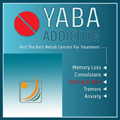-

ARK: Pioneering Drug Addiction Treatment in Chittagong
ARK, the first drug addiction treatment center in Chittagong, has reached a significant milestone in its 22-year journey. Established in 2002 as the first rehabilitation facility outside Dhaka, ARK has consistently led the way in drug addiction treatment in Bangladesh. Over the years, we have tirelessly worked to provide individuals battling substance abuse with a clear path to recovery , offering comprehensive care that integrates medical, psychological, and therapeutic interventions.
Today, we are thrilled to announce that ARK has relocated to a new, state-of-the-art complex in a serene countryside location, not far from the heart of Chittagong. This long-cherished dream has finally become a reality—a purpose-built facility spanning 4.5 acres, carefully designed to foster an environment conducive to healing and transformation.
Our new complex is more than just a rehabilitation center; it is a sanctuary where individuals struggling with addiction can find peace, hope, and a structured path to reclaiming their lives. The vast open space, fresh air, and natural beauty surrounding the facility significantly enhance the healing process, providing a stark contrast to the often chaotic urban environment.
The new facility features two expansive ponds, a lush green park, and a spacious playground, all of which contribute to a holistic recovery approach. Additionally, we are in the process of building a beautifully constructed mosque and other essential facilities, which will further enrich the environment. While some amenities are currently available, we are committed to gradually enhancing the complex to provide our patients with a comprehensive healing experience. We firmly believe that the journey to sobriety goes beyond detoxification and medical treatment; it involves rebuilding lives in ways that promote overall well-being. This environment allows our patients to reconnect with nature, engage in physical activities, and find solace in spiritual and community practices, all of which are vital for overcoming addiction.
At ARK, we have always embraced innovation in addiction treatment. Our relocation marks the introduction of updated methodologies that align with international best practices. Our comprehensive treatment model now integrates the Therapeutic Community approach, psychologist-assisted counseling, and medical supervision by doctors, psychiatrists, and other healthcare professionals. This multidisciplinary approach ensures that every patient receives personalized care tailored to their unique struggles and needs. Recognizing that addiction affects individuals on multiple levels—physically, emotionally, and socially—our treatment process addresses all these aspects to ensure long-term recovery. In addition to our new countryside facility, we continue to maintain a city office on Chatteswary Road, Chittagong. This office serves as a crucial point of contact for individuals and families seeking help, providing easy access to consultations and support. Here, concerned individuals can meet with top-tier professionals, including psychiatrists, counselors, and addiction specialists, to discuss their concerns and take the first step toward recovery. By maintaining this city office, we ensure that those in need have a convenient way to reach out to us, reinforcing our commitment to making professional addiction treatment accessible to all.
Our move to this expansive new facility signifies our dedication to setting a new benchmark for addiction treatment in Bangladesh. We are not merely providing a rehabilitation center; we are fostering a community that supports recovery and reintegration into society. Our vision is to create a space where individuals struggling with addiction are not only treated but are also empowered to lead fulfilling, drug-free lives. Every aspect of our new facility is designed with this vision in mind, offering a structured yet compassionate environment where patients feel safe, supported, and motivated to make a positive change.
Furthermore, we recognize that addiction is a societal issue that requires collective effort. We actively engage with families, communities, and organizations to raise awareness about substance abuse and the importance of professional treatment. By moving to this new location, we aim to enhance our outreach programs, educational initiatives, and partnerships to foster a more informed and supportive society.
For those who have placed their trust in ARK over the years, this new facility stands as a testament to our unwavering dedication to the cause of addiction recovery. We invite everyone—patients, families, professionals, and well-wishers—to visit and witness the transformative space we have built. ARK is more than a rehabilitation center; it is a beacon of hope for those seeking a second chance at life. As we step into this new chapter, we reaffirm our commitment to international standards of care, ensuring that every individual who walks through our doors receives the highest level of support on their journey to recovery.
-

The average cost of drugs per person were from BDT 160 to BDT1,000 per day or from BDT 58,400 to BDT 365,000 per year. The costing of drug abuse included only the cost of drug and related paraphernalia , the economic impact includes of health care expenditure, lost productivity, and other impacts on society such as crimes and accidents. The impact of drug addiction on different group of peoples as follows Male 93.9 % Unmarried 64.8 % Either students or unemployed (youth generation) 56.1 % Influenced by friends 85.7 % Addicted to methamphetamine (Yaba/Ecstasy) 65.8 % Addicted to more than one drug 64.3 % Took drugs in groups 65.8 % A history of unprotected sex 63.8 % The patterns and cost of drug abuse were investigated among 455 street drug abusers and 832 drug abusers who were admitted to different drug addiction treatment centre in Chittagong, Bangladesh
-

Yaba is a combination of methamphetamine and caffeine. Psychological effects of methamphetamine include euphoria, anxiety, increased libido, alertness, concentration, increased energy, increased self-esteem, self-confidence, sociability, irritability, aggressiveness, psychosomatic disorders, psychomotor agitation, dermatillomania(compulsive skin picking), hair pulling, delusions of grandiosity, hallucinations, excessive feelings of power and invincibility, repetitive and obsessive behaviors, paranoia, and - with chronic use and/or high doses - amphetamine psychosis. Long term yaba abuse has a high association with depression, ADHD, Bi-polar disorder as well as serious heart disease, amphetamine psychosis, anxiety, and violent behaviors. Yaba is also very highly addictive and now a day, it is the most abusive drug of choice among the drug addicts. Yaba is not directly neurotoxic but long-term use can have neurotoxic side-effects. Its use is associated with an increased risk of Parkinson's disease due to the fact that uncontrolled dopamine release is neurotoxic Long-term dopamine up-regulation occurring as a result of Yaba abuse can cause neurotoxicity, which is believed to be responsible for causing persisting cognitive deficits, such as memory loss, impaired attention, and decreased executive function. Similar to the neurotoxic effects on the dopamine system, Yaba can also result in neurotoxicity to the serotonin system14. Over 20% of people addicted to yaba develop a long-lasting psychosis resembling schizophrenia after stopping yaba. The condition persists for longer than 6 months and is often treatment resistant. Withdrawal symptoms of methamphetamine primarily consist of fatigue, depression, and increased appetite.Symptoms may last for days with occasional use and weeks or months with chronic use, with severity dependent on the length of time and the amount of yaba used. Withdrawal symptoms may also include anxiety, irritability, headaches, agitation, restlessness, excessive sleeping, vivid or lucid dreams, deep REM sleep, and suicidal ideation etc.
-

Drug addiction is a chronic, often relapsing brain disease that causes compulsive drug seeking and use, despite harmful consequences to the drug addict and those around them. Drug addiction is a brain disease because the abuse of drugs leads to changes in the structure and function of the brain. Many of us do not understand why or how other people become addicted to drugs. Family members and loved ones often assumed that drug addicts lack moral principles or willpower and that they could stop using drugs simply by choosing to change their behavior. In reality, drug addiction is a very complicated disease, and relinquishing takes more than good intentions or a strong will. In fact, because drugs change the brain in ways that nurture compulsive drug abuse, quitting is difficult, even for those who are ready to do so. Advanced science lets us know more about how drugs work in the brain than ever, and we also know that drug addiction treatment can be successful helping addicts stop abusing drugs and lead productive lives is possible.








 Download Admission Pre-Requisites
Download Admission Pre-Requisites